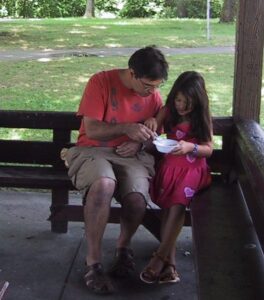Not eligible for speech-language services
“Not eligible for speech and language services!” What’s going on? Your child has been receiving speech and language services for several years or needs services. After a recent team meeting, you were informed that your child is not eligible for speech-language services. How can this be? Is this the right time to end services? What can you do?
Are they ready for discharge?
If your child has received speech and language services for a while they may indeed be ready to move from an individual or small group therapy to the regular classroom. You will know if they are ready because they are demonstrating their new skills not just on standardized tests, but in everyday life. Sometimes, however, students can do well on standardized test but still, struggle with using language in daily living. Students on the autism spectrum and students who are trying to use complex language beyond their abilities can have problems with language use that is not detected by a certain standardized tests. Another issue that arises is that some students catch up in language because of the individualized instruction, but they are not able to keep up in a regular class as the language demands become more complex. All of these problems may not be revealed using standardized testing alone. So if you are not sure your child is ready for discharge from services you may be right, but you will need to ask for additional testing or an independent evaluation.
Not eligible for speech-language services, but the struggle continues…
….with reading, writing, comprehension or verbal expression, and test results aren’t reflecting that reality, then further exploration is warranted. In order to uncover underlying language problems, there are a few things that you can ask a speech-language pathologist. First, make sure that current testing by subtest are comparable to previous testing. Those skills should be consistent in the level of performance, so for instance if in 3rd grade they were in the 9o percentile in vocabulary then in 5th grade they should not be in the 27 percentile that is a discrepancy. Large differences in numbers from year to year can be an indication of a difficulty, but can not be taken alone A discrepancy between subtest scores can also indicate problems, if it is 15 or more points different it is considered significant. Ask the examiner to account for those discrepancies. For example, if on the vocabulary subtest your child scores a standard score of 100, but on a sentence repetition task they score standard score of 65. What does the SLP think is the cause of that difference? We all do have strengths and weaknesses, but differences in skill level can result in frustration for your child.
Still trying to understand …another look
Next ask for a written or verbal narrative or language sample Some children with average intelligence easily perform structured tasks, including those on the autism spectrum, but given real-life tasks, in spite of, demonstrating average or even above average scores they do poorly. They may have an incredible difficulty time writing or telling a story or reading and writing a paragraph summary. Make sure if its a written sample that it is not from a classroom assignment but actually what they are able to do on their own in a 15-30 minute time span. In other words, it should be spontaneous and not scripted or edited by teachers. It can be edited by the child of course. A language sample gives a true example of how your child uses language. It is a valuable tool.
If you are concerned because you were told your child is, “not eligible for speech-language services,” here are a few tips to help you and school professionals uncover underlying speech and language problems. Looking at these areas ensures that your child’s language foundation will support the academic challenges ahead.

